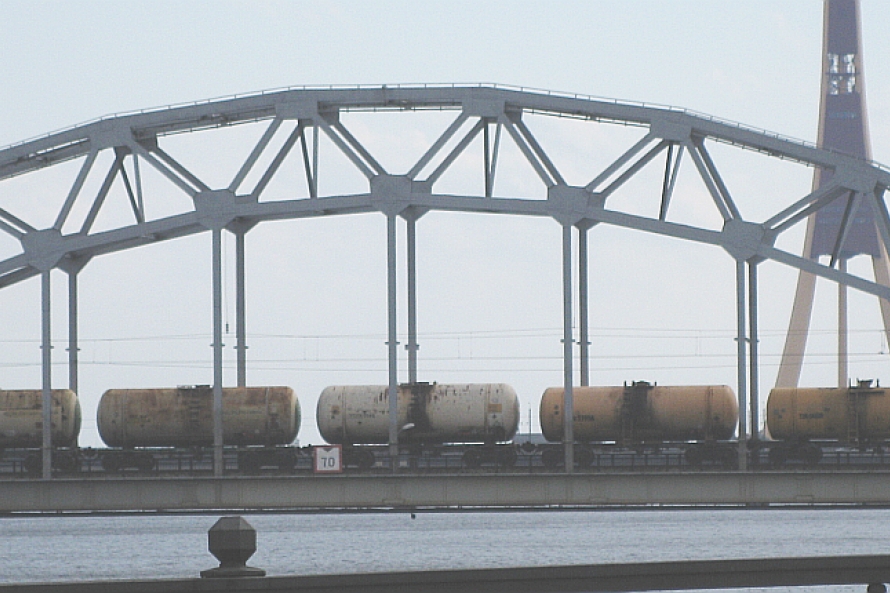As Latvian Television (LTV) news program Panorāma reported Saturday, expert opinions are divided over how to regard the increasing scope of recent Russian investments in Latvia’s transit sector. On April 9 Russian Railways’ purchased half the stock of Latvia’s rail carrier Liepājas naftas transits (Liepāja oil transit), with ties to two of Latvia’s leading oligarchs and former ministers.
And last month blacklisted Russian Railways president Vladimir Yakunin made a controversial guest appearance at Latvian Railways chief Uģis Magonis’ birthday party thrown at the magnificent baroque Rundāle Palace.
“Cargo transit trade with Russia makes up 75% of the entire turnover,” said Transport Minister Anrijs Matīss (Unity), who also hailed the Russian rail chief’s personal presence as a “very positive sign”. “It’s only logical the Russian companies want to control these cargo flows through Latvian territory. Thus, if Russian companies buy up a company in Latvia’s transit sector, this means the flow will be preserved,” he told Panorāma Saturday.
Magonis himself pointed out that there isn’t much room to grow the flow of cargo trade in the east-west corridor through Latvia and naturally the owners of the cargo are seeking ways to ensure cheaper and more controllable channels of transit, especially through Latvia’s ports. While Riga’s Free Port has seen the greatest share of investment from the east, in spite of tensions between western states and Russia, cargo flows grew by 6%. But it has become harder to discern which investments come from Russia and which ones do not.
Riga deputy mayor Andris Ameriks, who serves as chair of the Riga Free Port, said these companies have long since entered European markets, as far deep as Germany and the Netherlands. “They are already officially regarded as European structures,” he explained.
Transit sector expert Tālis Linkaitis sees it differently, however: “Strategic cargoes and their flow is a political issue. And they are being organized in accordance with Russia’s transport policies. Thus there are no essential changes to be expected in strategic cargo flows, unless something suddenly happens in Russian politics. It’s just the division of cargo, nothing more.”
But Latvia’s state security services, especially the Constitution Protection Bureau (SAB) have warned that the transit sector, which makes up 10% of the GDP and is 75% dependent on neighboring state cargoes, could become a way for Russia’s economic leverage to facilitate its political goals.
SAB chief Jānis Maizītis said that “undoubtedly there’s quite some risk there. But there’s the other side of the coin. We’re neighbors, we must trade. And in the energy sector we’re not the only country dependent so much on Russia. But we must find the optimal solutions to keep trade and development ongoing despite these risks,” he argued.
Magonis, still fresh from his birthday jubilee last month, agrees with Maizītis to a point. “Of course, if you ask how trustworthy is RZD Logistics (holding company of Russian Railways), from the business perspective, I can say they are completely trustworthy, but one must take into account the political issue. They could be ordered not to work with Latvian Railways and Latvia. But that wouldn’t depend on us, but rather on the attitudes of politicians toward their people and their neighbors, and from their long-term vision,” he said.
To keep Latvia protected from surreptitious politically motivated investments, Premier Laimdota Straujuma has urged that the Economics Ministry’s Investment Protection Council finally activate its work this week. The Council was established several years ago, however has not lodged any formal activity so far.





























